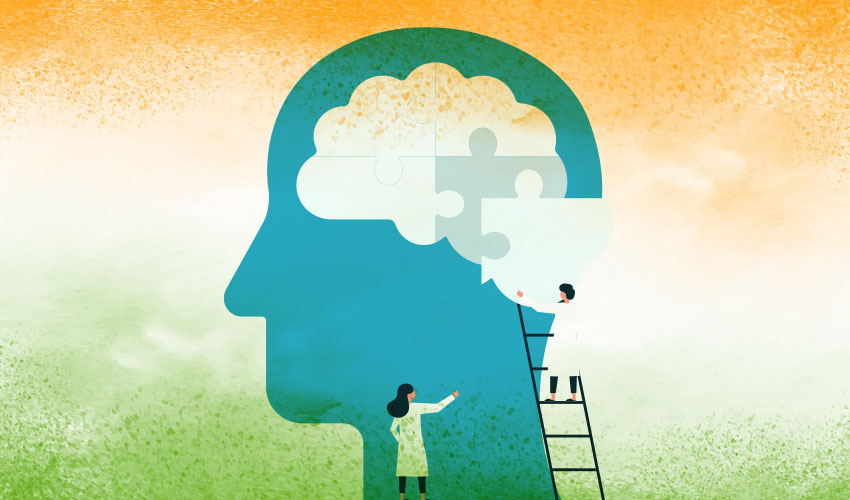The emotional, psychological, and social well-being of an individual are all part of one’s mental health. It has an impact on the way people think, feel, and act. It also influences how they deal with stress, interact with others, and make decisions. Mental health is vital at all stages of life, including childhood, adolescence, and maturity. It is a well-known fact that awareness of mental health in India is at a low state as compared to other countries. Hence, the government of India has taken the initiative to work towards increasing the awareness of mental health in India.
The Mental Healthcare Act of India
The Mental Healthcare Act of India was passed on 7th April 2017 and was put into force from 29th May 2018. As per this act, “Mental illness” is defined as “a substantial disorder of thinking, mood, perception, orientation, or memory that significantly impairs judgment or ability to meet the regular demands of life, as well as mental conditions connected with the consumption of alcohol and drugs.” This act revoked the existing Mental Healthcare Act of 1987, which was criticized as it did not recognize the rights of patients suffering from Mental illnesses.
Provisions under the Mental Healthcare Act of India
Right of every individual towards access to mental health services which must be of good quality, convenient, affordable, and accessible. Further, this act protects the patients from inhumane treatment, to have free legal assistance and access to their medical information, as well as the right to file a complaint if provisions are deficient.
Advance Directive- This gives a mentally ill individual the ability to make an advance directive on how they wish to be treated for the illness and who will be their selected representative. A medical professional must approve this directive.
The government must establish a National Mental Health Authority and State Mental Health Authorities in each state. This authority will require all mental health practitioners (clinical psychologists, mental health nurses, and psychiatric social workers) and mental health institutes to register. These bodies will (a) register, supervise, and maintain a register of all mental health establishments; (b) develop quality and service provision norms for such establishments; (c) maintain a register of mental health professionals; (d) train law enforcement officials and mental health professionals on the act’s provisions; (e) receive complaints about service deficiencies, and (f) advise the government on mental health issues.
The act lays out the procedures and processes for admitting, treating, and then releasing mentally ill people.
It decriminalizes a mentally ill person’s attempt at suicide. It also requires the government to rehabilitate such a person to guarantee that a suicide attempt does not occur again. Electroconvulsive treatment (ECT) without the use of muscle relaxants and anaesthesia is not permitted for those with mental illnesses. Furthermore, minors will not be subjected to ECT therapy.
If a police officer in charge of a police station has grounds to think that a mentally ill person is being mistreated or neglected, they must report it to the Magistrate. The bill also requires any police officer in charge of a police station to take any wandering person under protection; such a person will be subjected to a medical examination and, based on the results of that examination will be either admitted to a mental health facility or taken to their residence or to a homeless person’s establishment.
Violations of this Act’s provisions will result in imprisonment for up to 6 months or a fine of Rs. 10,000, or both. Repeat offenders could face a sentence of up to two years in prison, a fine of Rs. 50,000–5 lakhs, or both.
The Mental Health Act has been in force since the year 2018. Recently, a decision was made during the Financial Budget of the year 2022, where it was announced that a national tele-counselling mental health program will be launched; it will include a network of 23 tele mental health centres with NIMHANS (Bangalore) as their main centre. India wants to change the fundamental approach towards the mental health sector through this act by including more patient-centric health care instead of criminal- centric one which had been the approach to mental health care for years.
There has been an increase in the number of centres that are following a more sensitive patient-centric approach such as luxury rehabs that provide treatment for depression, anxiety, and addiction. One such voluntary luxury rehab is Veda Wellness and Rehabilitation which is located in Mumbai, Bangalore and they will be opening a centre in Delhi soon.

